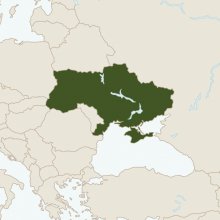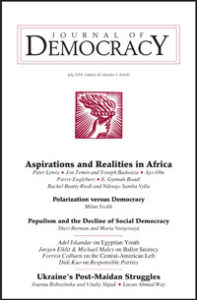
NDI
Ukraine’s lawmakers approved (HT: CFR/RFE/RL) thirty-five-year-old lawyer and political newcomer Oleksiy Honcharuk as prime minister. Honcharuk said he will begin talks with the International Monetary Fund on a new aid agreement in the coming weeks.
The presidential election in April produced a surprising victory for Volodymyr Zelenskiy. In July, Zelenskiy’s ‘Servant of the People’ party followed up on this success by winning a snap parliamentary election. Maynooth University’s Oleg Chupryna notes that with an anti-establishment majority now in parliament, there is hope Ukraine may be able to break from the corruption that has characterised the country’s politics since the 1990s.
Neither the Orange Revolution nor the Euromaidan Revolution succeeded in fulfilling Ukrainian citizens’ sincere expectations that this corrupt predatory system would be eradicated, he writes for the LSE’s EUROPP blog:
The main reason was that new presidents and most new members of parliament who arrived in power as a result of the popular revolutions still belonged to the same corrupt political elite. Thus, they had no genuine desire to eliminate the existing oligarchic system. Those remaining handful of deputies who lie outside of this system were unable to make any difference. Nevertheless, in due course the Ukrainian populace learned valuable and essential political lessons and in the presidential election in April, they overwhelmingly voted for Zelenskiy, who was unaffiliated with the ruling elite. RTWT
Five years after the EuroMaidan protests drove a corrupt president from power, how is Ukraine’s democracy faring? The NED’s Journal of Democracy asks. There are anxieties about what an inexperienced president with undefined loyalties and policies will mean for Ukraine’s besieged, relatively young democracy, Joanna Rohozinska and Vitaliy Shpak* observe, laying out the factors leading to Zelensky’s surprise presidential victory.
The Czech NGO People in Need (PIN) is seeking to recruit a Programs Director in Ukraine.







